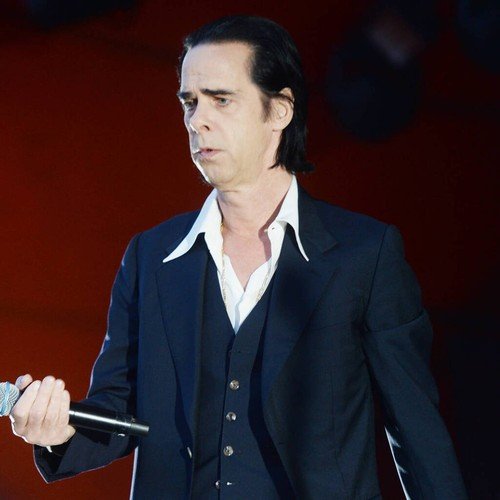Even as an era of soul-baring artists playing stripped-down, heart-heavy songs takes hold in country music, Nolan Taylor manages to stand out.
Since his reflective song “68” caught fire on social media in 2023, and after spending a year opening for Wyatt Flores and the Lost Dog Street Band, as well as landing on the Twisters soundtrack last summer, Taylor has built a fanbase that is growing by leaps and bounds. The payoff came last week when he released his 16-track self-titled debut album on Atlantic records. The songs are intense and heavy, but that’s the way Taylor lived to get himself here.
“It’s just been years of compiling stories of my life,” Taylor tells Rolling Stone. “I actually recorded a record that I wasn’t too happy with, and as soon as I was about to release it, Atlantic reached out and said, ‘Hey, we want to do your first record.’ Well, that kicked it into a whole different level, and I started writing heavily. It’s important to me, because these are stories from the earliest times of my life all the way until I released this record. It is up-to-date with me.”
Fans at his shows and on social media have followed the story of the Blanchester, Ohio, native. They sing his songs back to him — a standout characteristic of the newest generation of country music — but they also give him space to share stories from his past. He’s been playing the stark ballad “Darkness” for more than a year now, nearly always prefacing it with stories of his struggles with suicidal thoughts or self-harm, and how writing the song through depression brought him light at the right time.
“It’s like therapy for me,” Taylor says. “It allows me to just express what’s going on. I never really looked at it another way. I was just always writing songs if I was sad, the same way that Bob Dylan used to get sad and write songs — and we might not understand that he was sad when he was writing them, but that’s what he did. The songs that are the heaviest, they just come right out, because it’s just something that I needed to say for a while.”
Editor’s picks
The Dylan reference is a nod to Taylor’s musical roots, which are far less country than they are rock & roll. His father, he says, was a fan of the Doors and Grateful Dead, but his awakening came during the grunge era of the early 1990s, which he recalls as “the best songwriting I ever heard.” Then, in the early 2000s, he got turned on to Joe Purdy, a reggae-influenced folk singer-songwriter from Arkansas. “He blew me away. First person I ever listened to who made me bawl my eyes out,” Taylor says.
Those influences show in Taylor’s sound. He prefers simple arrangements that allow his voice to echo off the walls in the bars and clubs at which he performs, making it easier for audiences to learn his songs and sing along. (Visually, he sports a long beard that draws visual comparisons to Chris Stapleton and Jamey Johnson; his voice can at times evoke the latter.)
He says he’s awed by the crowd response so far. “It’s the most unbelievable feeling in the world to have anything I’ve ever written in my life resonate with somebody,” Taylor says. “Especially on a very emotional level.”
His self-titled album was recorded in multiple places around the country, from Oregon to upstate New York, without one specific producer calling the shots. However, the combination of the New York sessions and producer David Baron resulted in the most heartbreaking moment of the record, the early single “Holdin’ On.”
When Taylor hits the bridge of “I’m sorry love/You deserve a better man,” he forces himself to the outer edges of his range in a way that pleads with the listener to pay attention to a song about self-loathing, doubt, and raw, unbridled pain. Taylor brought bare-bones lyrics into the studio, and when Baron heard them, he told Taylor to drop everything and take a walk around the property and fully write the song.
Related Content
Elsewhere, in the examination of self-worth “Love Until We Die,” written during a bout of homesickness while in Eugene, Oregon, he juxtaposes love with the end of life. “That’s probably my favorite song that I’ve written,” he says. “I don’t get homesick very often, but I started getting into this deep depression. I started writing about feeling inadequate in my relationship, and thinking about things I’d done in my life in the past seven years that had me going through it. I created a story that says somebody should leave me, because I’m not a good person. The whole thing is just battling insecurities.”
Taylor returns to the road in March with a run of dates supporting Charles Wesley Godwin, followed by a handful opening for Ole 60. He enjoys the time he spends with other young, emotionally-driven songwriters and views the newest generation of country artists as allies rather than competitors. The old metaphor of a rising tide lifting all boats is on his mind when he speaks of Godwin, Flores, and the artists he’s shared the stage with.
“It’s amazing. We’re all covering each other. We’re running around playing each other’s songs. We’re releasing each other’s songs,” he says. “We’re trying to write together. It’s the coolest thing in the world.”
Josh Crutchmer is a journalist and author whose third book, Red Dirt Unplugged, was released in December via Back Lounge Publishing.




